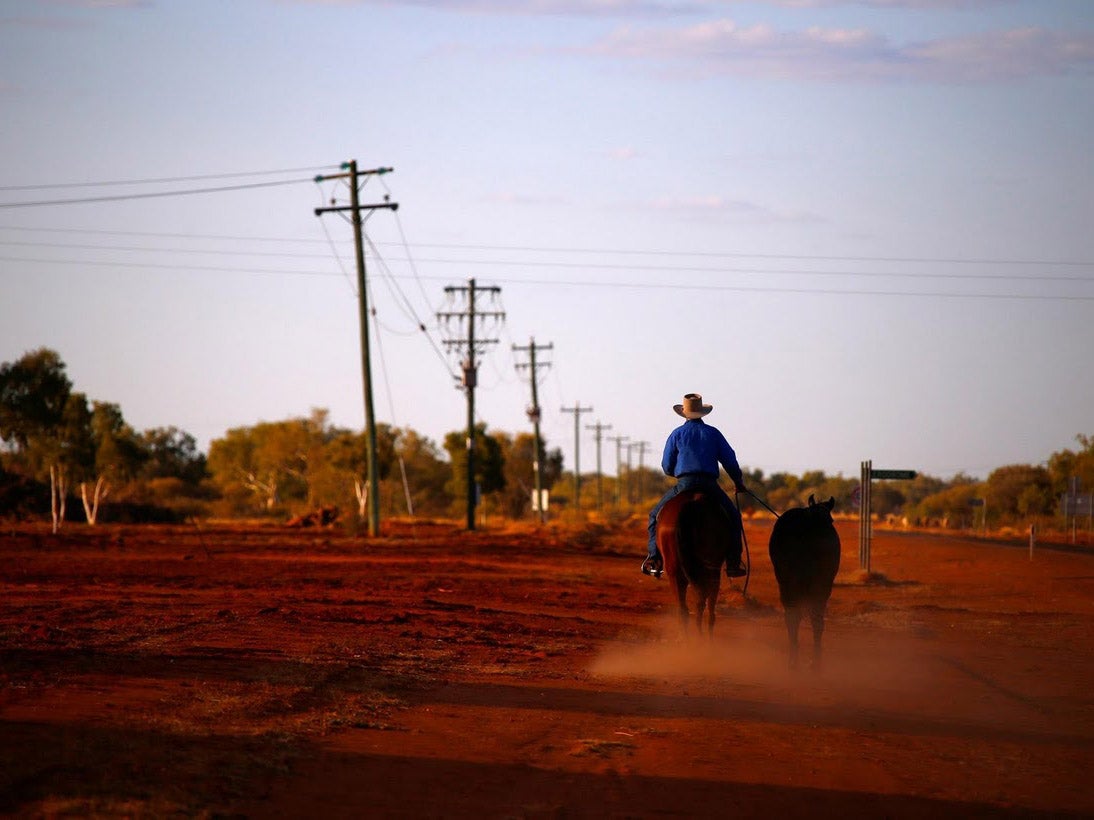
Meat from cows kept in harsh conditions banned in the UK will be imported under the trade deal struck with Australia, despite government promises to improve animal welfare after Brexit.
Cattle are transported for up to 48 hours without eating and drinking in parts of Australia, its High Commissioner has admitted – and those animals are included in the deal hailed by Boris Johnson as a big prize from leaving the EU.
The journeys are more than three times the limit of 14 hours without stopping for food and water in this country, a figure expected to be cut to 10.5 hours under post-Brexit changes.
Campaigners have accused ministers of quietly slashing standards – even as a Kept Animals Bill is meant to end “excessively long journeys” before animals are slaughtered.
Compassion in World Farming called the move “completely unacceptable”, while the RSPCA warned it paved the way for further trade deals that will permit “poor animal welfare”.
Australia has raised eyebrows by arguing its Brahman cattle are more “durable” than cows in the UK and therefore able to cope with 48-hour journeys without a break.
George Brandis, the High Commissioner, also told MPs the “vast majority” of its cows live in less remote areas from which journey times are much shorter.
But Barry Gardiner, a member of the Commons environment committee which is investigating the deal, said: “We no longer send children up chimneys in this country.

“It was never in the latter years very common – but we put a law in place to stop it. The fact it does not happen very often does not mean there should not be a law in place to stop it.”
The committee has questioned other animal welfare practices in Australia, including hot branding, painful cutting of sheep (mulesing) and the lack of CCTV in slaughterhouses to trap rule-breakers.
But, on the latter, Mr Brandis insisted: “You will find that Australian farmers are very law-abiding people. They do not need to be supervised by CCTV to obey the law.”
James West, senior policy manager at Compassion in World Farming, warned British farmers would face competition from meat produced through “inhumane farming standards”.
“We should not be undermining improvements in UK standards by importing products from animals that have suffered even more elsewhere,” he told The Independent.

David Bowles, of the RSPCA, said: “The UK has promised to lead the world on animal welfare – but this is just telling future trade partners that poor animal welfare is no impediment to a trade deal.
“With the UK government seeking to sign trade deals as quickly as possible, we’re likely to come under pressure to lower standards or let in lower quality products.”
The campaigners pointed to the promise made at the unveiling of the Kept Animals Bill, to implement “a manifesto commitment to end excessively long journeys for slaughter and fattening”.
It claimed: “Now we have left the EU, we have the opportunity to look at alternative methods to better protect animal welfare during transport.”
Farmers’ leaders have already attacked the Australian trade deal for breaking a promise to protect them from cheaper imports for 15 years.
Australian farmers are effectively being handed tariff-free access to the UK market from day one, up to a “cap” on sales that is 60 times the current level of imported beef.
A government spokesperson argued the Trade and Agriculture Commission, a watchdog for new trade deals, had found imports of beef from cows that have travelled distances banned in the UK are “unlikely”.
“We have always said that we will not compromise the UK’s high environmental, animal welfare or food safety standards,” the spokesperson said.
Mr Brandis was quizzed on 48-hour transportation by the environment committee, conceding it is “the maximum” allowed, but arguing most journey are “a few short hours”.
“Very rarely in the far north of Australia, in far north Queensland and in the Northern Territory, you may get distances like that,” the High Commissioner said.
He added: “The cattle there are Brahman cattle, which is a completely different breed from the type you have in the United Kingdom. They are bred for dry conditions and they are very durable beasts.
“Please let us not use this 48-hour figure, because it is extremely rare. It applies only to cattle of a kind, durability and robustness that you do not have in the United Kingdom. It is misleading to think that is an Australian standard.”







